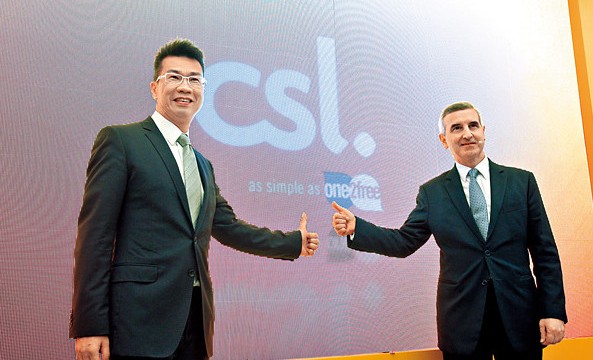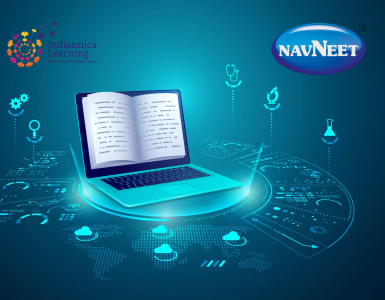DEAL/TRANSACTION:
CSL limited had agreed to buy Novartis AG’s global influenza vaccine business for $275 million, part of the Swiss drugmaker’s drive to focus on its best assets. The business will be combined with CSL’s subsidiary, bioCSL. Final settlement of the transaction is expected to occur in the second half of the calendar year 2015, subject to regulatory approval. The acquisition is expected to be funded through surplus cash. The sale by Novartis comes as part of the company’s broader exit from the vaccine business. CSL expects the combined business to achieve sales approaching $1 billion per annum over the next 3 to 5 years. CSL has demonstrated its ability to make the most of the specialist pharmaceutical acquisitions in areas we know well and this transaction has the potential to create a global platform for bioCSL that is comparable in many aspects to our global protein science business.
CSL LIMITED:
CSL Limited is the world’s largest blood products company. It is headquartered in Melbourne, Australia. It has more than 40 years of experience in the influenza vaccines business and operates in 27 countries with more than 13,000 employees worldwide. In addition to vaccines, CSL has established businesses in plasma-driven therapies, pharmaceuticals, anti-venoms, and immune-hematology. CSL Limited is the parent company of CSL Behring and bioCSL.
bioCSL is a leading provider of essential vaccines, pharmaceuticals, and diagnostic reagents. It operates one of the world’s largest influenza vaccine manufacturing facilities in Australia and maintains fill and finish facilities in the United States and Germany for the timely, reliable supply of influenza vaccines to global markets. bioCSL also specializes in the production of anti-venoms and is the world’s only producer of Q Fever vaccine.
CSL Behring is a leader in the plasma protein therapeutics industry. Committed to saving lives and improving the quality of life for people with rare and serious diseases, the company manufactures and markets a range of plasma-derived and recombinant therapies worldwide. CSL Behring operates one of the world’s largest plasma collection networks, CSL Plasma.
CSL is now aiming to become a more important part of the global fight against the flu virus.
NOVARTIS:
Novartis provides innovative healthcare solutions that address the evolving needs of patients and societies. Headquartered in Basel, Switzerland, Novartis offers a diversified portfolio to best meet these needs: innovative medicines, eye care, cost-saving generic pharmaceuticals, preventive vaccines, over-the-counter and animal health products. Novartis is the only global company with leading positions in these areas. In 2013, the Group achieved net sales of USD 57.9 billion, while R&D throughout the Group amounted to approximately USD 9.9 billion (USD 9.6 billion excluding impairment and amortization charges). Novartis Group companies employ approximately 135,000 full-time-equivalent associates and sell products in more than 150 countries around the world.
Flu Shots Division of Novartis:
Flu shots may be important, but they’re not very lucrative for Novartis as of now. Novartis last year sold $527 million worth of flu vaccines, but that wasn’t enough to make the business profitable. Novartis spent $144 million on R&D for flu vaccines and ended up with an operating loss of $138 million. The sale concludes a major reshaping of its business which the Swiss drug giant announced a year ago. It will conclude Novartis’ overhaul of its units which it had flagged in April, aimed at strengthening its cancer business and exiting underperforming operations. Novartis is selling the loss-making flu vaccine business to CSL for roughly a quarter of its book value. That will trigger an immediate impairment charge, the company notes, although it adds that a one-time operating income gain it expects to book with the closure of the Glaxo deals next year should more than compensate for the charge.
FOR CSL TO GAIN:
- Combining bioCSL’s existing influenza vaccine operations with the Novartis business will create the number two global player in the US$4 billion global influenza vaccine industry, with manufacturing plants in the US, UK, Germany and Australia, a diversified product portfolio and strong pre-pandemic and pandemic franchises in its major centers of operation.
- The Novartis influenza vaccine business is one of the largest in the world, with net sales in the 12 months to 31 December 2013 of US$527 million. The business has state-of-the-art manufacturing facilities with substantial capacity to support growth and a diversified, late-stage product pipeline.
- Scale economies, product differentiation, and pandemic preparedness contracts to drive sales growth and robust margins
- The combined business will have a strong growth profile and is expected to achieve sales approaching US$1 billion per annum over the next 3 to 5 years.
- The Novartis influenza vaccine business provides bioCSL with a global leadership position in an attractive sector. It will transform bioCSL by giving it first class facilities and global scale as well as product and geographic diversity.
- Acquisition synergies are estimated to reach US$75 million per annum by the fiscal year 2020. Integration costs are estimated at $US100 million, accruing predominantly in the fiscal year 2016.
- In a typical year:
– 5-20% of the global population contract influenza
– 3-5 million cases of severe illness
– 300,000-500,000 death
- Established commercial infrastructure in the US, achieving 45% volume growth in FY15. The Holly Springs plant spans 475,000 square feet, and about half its cost was covered by the federal Biomedical Advanced Research and Development Authority, or BARDA. It received approval from the U.S. Food and Drug Administration in June to make commercial supplies of Flucelvax, a flu vaccine made from cell cultures instead of chicken eggs. The plant also produces pandemic influenza vaccines for the national stockpile. The 185-acre Holly Springs site has six buildings linked by a central corridor, including bulk production, viral pilot plant, quality control testing and office space.
VALUATION:
There is no comparable available. Novartis disclosed that CSL’s purchase price of $275 million is below the book value of the business unit. The fair value of net assets acquired expected to exceed consideration, resulting in a one-off accounting gain. It will be accretive within 2-3 years. Synergies of US$100 million predominantly in FY 16.
SHARE MOVEMENT:
Shares of CSL were up 1% in Sydney in late Monday trade, giving a sign of the acquisition in favor to the company in the coming years.
CONCLUSION:
CSL has gained more than the consideration paid. The acquisition will more than triple its capacity with the addition of first class manufacturing facilities, increase the global footprint of bioCSL to more than 40 countries and provide them a diversified portfolio of influenza products covering all ages. CSL expect the deal to be accretive in 2-3 years with annual sales approaching $1bn over the next three to five years. In sum, the acquisition makes a lot of sense.




